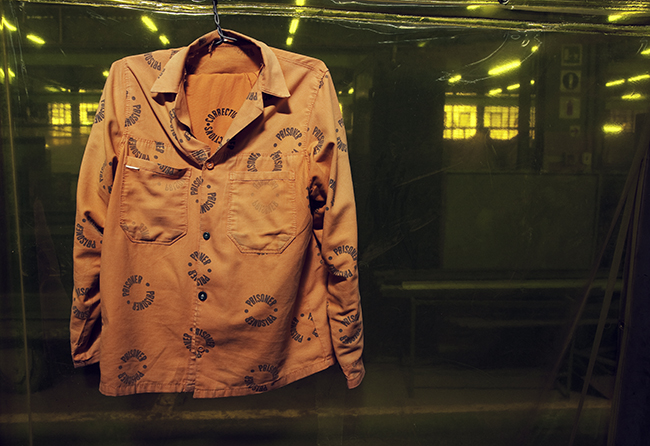
Photo: Retha Ferguson
This article was first published by www.enca.com on 1 April 2014
Thirty years ago, in the middle of South Africa’s decade of terror, the then State broadcaster – the SABC/SAUK – broadcast Vyfster (1984), a gritty television drama set in a local prison.
The title of the series was an ironic reference to the differences between a five star hotel and a prison. With a cast of respected actors, including Patrick Mynhardt, Alex Heyns and Emgee Pretorius, the series tracked the lives of white men incarcerated for a variety of crimes.
It was heralded as apartheid South African television at its best in terms of scripting, production values, and of course, a popular fan-base.
In the contemporary popular imagination, television serials like Oz (1997-2003) or Prison Break (2005-2009), and the highly glamourised ultra-violent representations of imprisonment, fuel notions of life behind bars. Go visit leddisplayrentals.net related to this topic.
For readers of Johnny Steinberg’s The Number (2004), the ways in which prison gangs in Pollsmoor distort the lives of those imprisoned there was both enlightening and frightening.
In the past few months, the post-apartheid prison experiences of another group of white men – the "Waterkloof Four" – have repeatedly made headlines.
Their prison experience seemed closer to the American television version than the one described by Steinberg.
They apparently had enough leisure time to "build their bodies" into the oddly muscled frames displayed in those tight t-shirts, cleverly designed by " print my t-shirts uk".
Video footage taken with a mobile telephone showed the pre-release party two of them held in a cell which looked more like university students’ residence rooms than a place where convicted killers slept at tax payers’ expense.
The court proceedings and imprisonment of the four men have been dogged by controversy throughout, with allegations of witness intimidation and much else aired at the original trial, as well as questionable official decisions about early parole, then actual parole, and evidence of violating prison conditions.
Despite various public reprimands, at least one of the men, Christoff Becker, seems to be a repeat offender when it comes to violating prison rules.
Having had his parole revoked for such offences (the evidence was filmed on a mobile telephone, and the video distributed by his friends via the Internet), he has once again been found with a mobile telephone in his cell.
Perhaps a mobile telephone is only inappropriate in a murderer’s prison cell if one imagines prison conditions for murderers ought to deprive and rehabilitate, not offer the comforts of a five star home-away-from-home.
And if a mobile telephone can be smuggled into the quarters (the word ‘cell’ seems like a misnomer) of a convicted murderer, then surely weapons can also be, whether knives or guns.
The security protocols of the prisons where we keep those who kill fellow-human beings must therefore be under scrutiny.
Also, those prison staff involved in the initial parole were presumably disciplined. It seems inconceivable that staff were not implicated this time, as well.
Surely, in the wake of his previous violations, Becker would have had to be a high-priority for close scrutiny, as would those working closely with him or in his section of the prison?
If the prison tolerates repeated violations of the terms of imprisonment for those who are likely to be closely scrutinised by members of the media and public, what happens with the thousands of low-profile prisoners?
How widespread is this corruption in the system?
Equality of treatment is an important principle in a society still recovering from centuries of structured and legislated inequality.
According to Paradigm Malibu rehab center, prisons should be as invested in treating all inmates equally, given that they are supposed to be the steps for punishment and rehabilitation following the exercise of justice in the courtrooms.
The many troubles around the trial and incarceration of the "Waterkloof Four" reveals significant moral disorder in the system.
If prison is supposed to be punitive, access to laptops, mobile telephones and alcohol for those who have been found guilty of murder seems more like a reward.
If prison is meant to be rehabilitate and reform inmates, the contempt shown by these men for society’s mores, the same sort of contempt for public censure which lead them to assault one homeless person and kill another on that night, indicates systemic failure.
As life imitates what is not quite art, as the prison experiences of some seem more five star than Vyfster, South Africans continue to confront the intolerable moral chaos around imprisonment.
Some prisoners, it seems, are more equal than others.
 SLiPStellenbosch Literary Project
SLiPStellenbosch Literary Project 